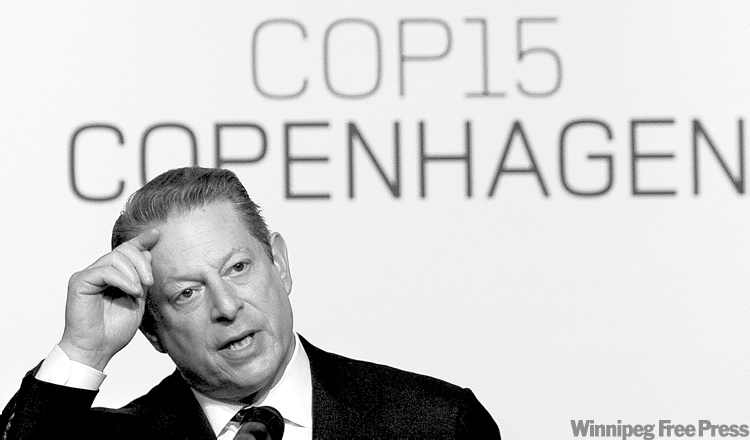Ice-cap melting intensifies: report
Ice-free summer for Arctic Ocean as early as 2014
Advertisement
Read this article for free:
or
Already have an account? Log in here »
To continue reading, please subscribe:
Monthly Digital Subscription
$0 for the first 4 weeks*
- Enjoy unlimited reading on winnipegfreepress.com
- Read the E-Edition, our digital replica newspaper
- Access News Break, our award-winning app
- Play interactive puzzles
*No charge for 4 weeks then price increases to the regular rate of $19.00 plus GST every four weeks. Offer available to new and qualified returning subscribers only. Cancel any time.
Monthly Digital Subscription
$4.75/week*
- Enjoy unlimited reading on winnipegfreepress.com
- Read the E-Edition, our digital replica newspaper
- Access News Break, our award-winning app
- Play interactive puzzles
*Billed as $19 plus GST every four weeks. Cancel any time.
To continue reading, please subscribe:
Add Free Press access to your Brandon Sun subscription for only an additional
$1 for the first 4 weeks*
*Your next subscription payment will increase by $1.00 and you will be charged $16.99 plus GST for four weeks. After four weeks, your payment will increase to $23.99 plus GST every four weeks.
Read unlimited articles for free today:
or
Already have an account? Log in here »
Hey there, time traveller!
This article was published 15/12/2009 (5844 days ago), so information in it may no longer be current.
COPENHAGEN, Denmark — New computer modelling suggests the Arctic Ocean may be nearly ice-free in the summertime as early as 2014, Al Gore said Monday at the U.N. climate conference.
This new projection, following several years of dramatic retreat by polar sea ice, suggests that the ice cap may nearly vanish in the summer much sooner than the year 2030, as was forecast by a U.S. government agency eight months ago.
One U.S. government scientist Monday questioned the new prediction as too severe, but other researchers previously have projected a quicker end than 2030 to the Arctic summer ice cap.

“It is hard to capture the astonishment that the experts in the science of ice felt when they saw this,” said former U.S. vice-president Gore, who joined Scandinavian officials and scientists to brief journalists and delegates. It was Gore’s first appearance at the two-week conference.
The group presented two new reports updating fast-moving developments in Antarctica, the autonomous Danish territory of Greenland, and the rest of the Arctic.
“The time for collective and immediate action on climate change is now,” said Denmark’s foreign minister, Per Stig Moeller.
But delegates from 192 nations were bogged down in disputes over key issues. This further dimmed hopes for immediate action to cut more deeply into global emissions of greenhouse gases.
Gore and Danish ice scientist Dorthe Dahl Jensen clicked through two slide shows for a standing-room-only crowd of hundreds in a side event at the Bella Center conference site.
One report, on the Greenland ice sheet, was issued by the Arctic Monitoring and Assessment Program, an expert group formed by eight Arctic governments, including the U.S. The other, on the status of ice melt worldwide, was commissioned by Gore and Norway’s government and compiled by the Norwegian Polar Institute.
Average global temperatures have increased 0.74 degrees C in the past century, but the mercury has risen at least twice as quickly in the Arctic. Scientists say the makeup of the frozen north polar sea has shifted significantly in recent years as much of the thick multi-year ice has given way to thin seasonal ice.
In the summer of 2007, the Arctic ice cap dwindled to a record-low minimum extent of 4.3 million square kilometres. The melting in 2008 and 2009 was not as extensive, but still ranked as the second- and third-greatest decreases on record.
Last April, the U.S. National Oceanic and Atmospheric Administration predicted that Arctic summers could be almost ice-free within 30 years, not at the 21st century’s end as earlier predicted.
— The Associated Press

